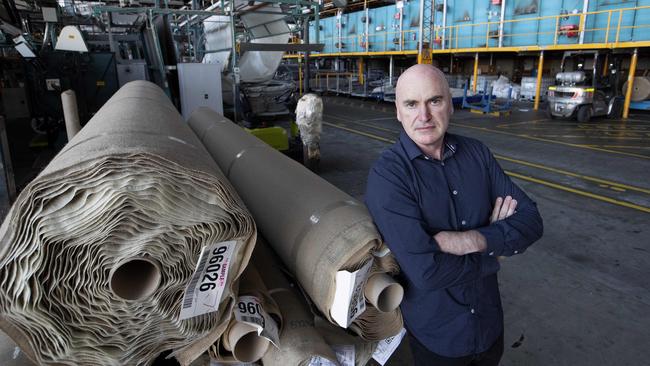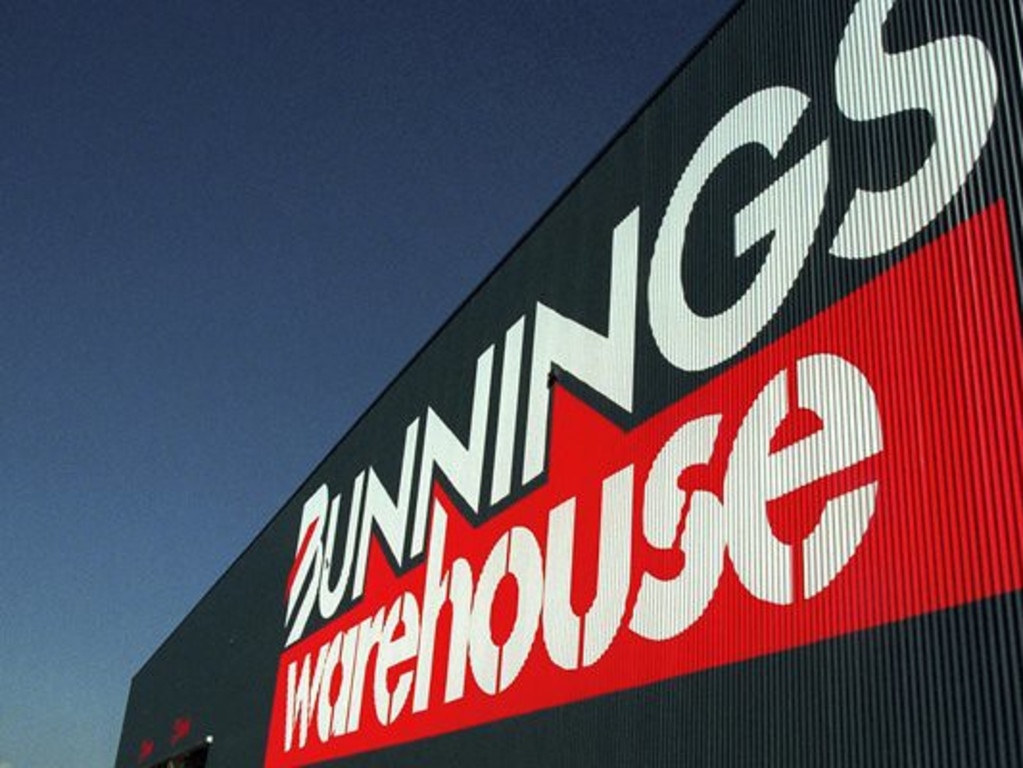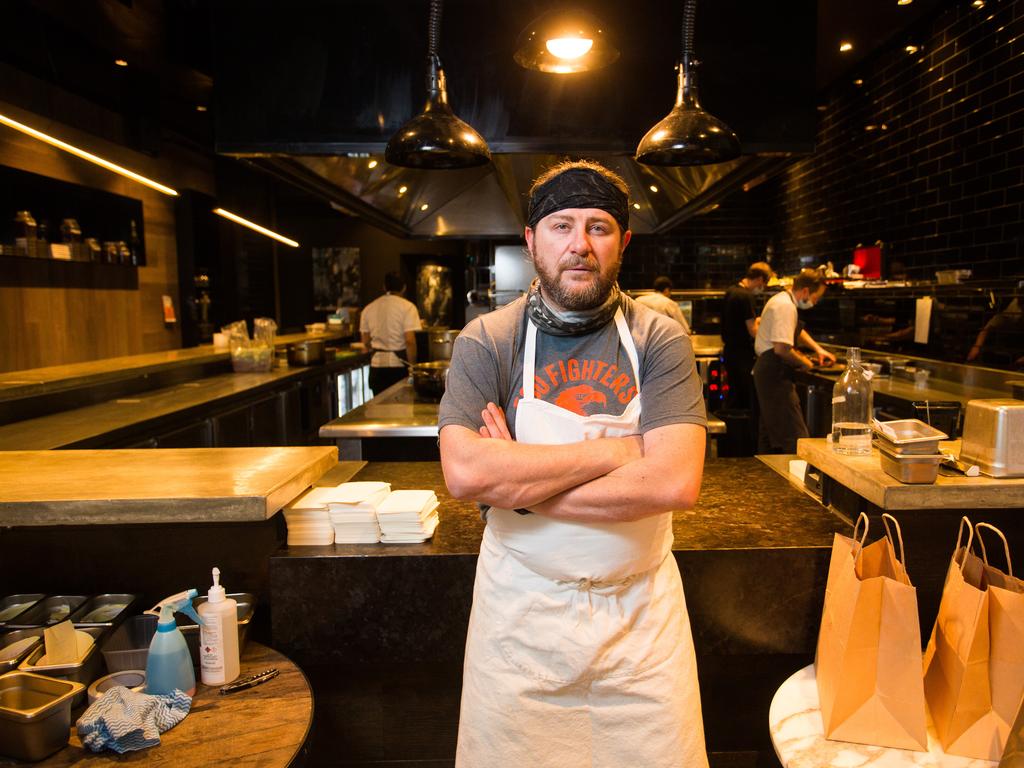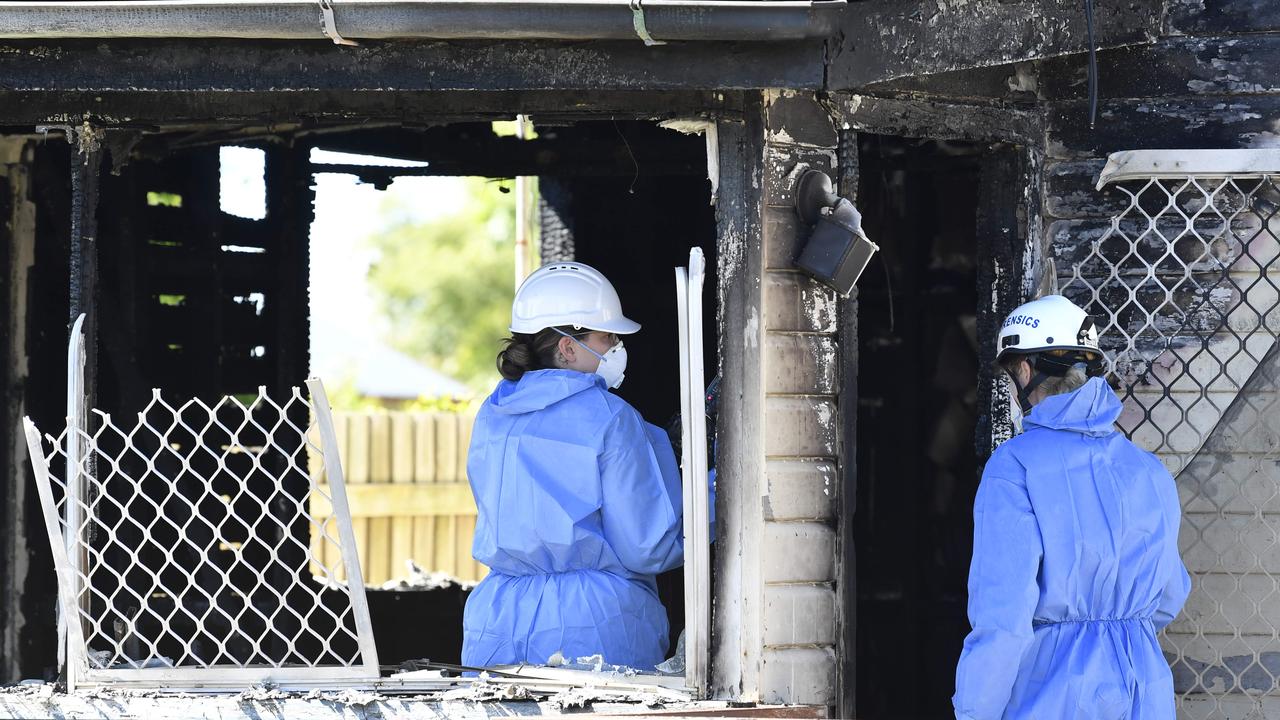Andrews’ roadmap: ‘eliminate business’
The lockdown extension will impose a huge emotional burden and do ‘incalculable’ damage to the economy, the Wesfarmers boss says.

Wesfarmers managing director Rob Scott says Daniel Andrews’ lockdown extension will impose a huge emotional and financial burden on Victorians, and do “incalculable” damage to the economy.
Mr Scott, who oversees the Bunnings and Officeworks chains and employs 30,000 people in the state, was also highly critical of the Victorian Premier for a lack of consultation in extending the state’s strict lockdown for weeks.
“We have not had any meaningful engagement with the government around retail operations and nor any feedback as to whether our retail network presents any risks to the community,” he said. “The diversity and financial strength of Wesfarmers will enable us to get through the Victorian lockdown but many other businesses may not … it will be impractical for many retailers to plan for and trade through such uncertainty at what is normally the busiest time of the retail year.”
After months of public support from the business sector about the need for a hard lockdown, Mr Scott’s robust comments are a clear sign corporate Australia is feeling betrayed by the continuation of the shutdown and feels its concerns haven’t been heard.
Australian Retailers Association chief executive Paul Zahra said the road map would “permanently wipe out a large number of small businesses and see the closure of many Victorian stores by national retailers”.
Shops in metropolitan Melbourne have been closed for more than three months due to the COVID-19 pandemic, with some hair salons closed for five months.
Other than those deemed essential, retailers can only provide “click and collect” shopping for customers within 5km until October 26, and possibly longer if average daily infection numbers don’t fall below five. “It is unrealistic to target single-digit daily case rates before reopening,” Mr Zahra said. “NSW has remained open and on track with double-digit performance of around 10-18 cases during much of August.”
Other business groups also reacted angrily to Mr Andrews’ road map, with Ai Group chief executive Innes Willox describing it as a “document of despair”.
“All reasonable health advice recognises that the virus will be with us for years and points to the need for us to do better to keep our economy open and take practical steps to keep workplaces safe,” Mr Willox said.
“Hoping for a vaccine and constantly threatening to shut down business activity is not an economic strategy.
“Nor is it a strategy to protect the overall health and well‑being of Victorians.”
But Victorian Trades Hall Council secretary Luke Hilakari said Mr Andrews had “no choice but to follow the health advice”.
“Workers don’t want to be coming in and out of restrictions,” Mr Hilakari said.
“We just want a steady plan that gives us certainty.
“While it’s disappointing that we can’t more readily open, what would be more disappointing would be a third wave.”
Gareth Aird, the Commonwealth Bank’s head of Australian economics, said the weekly cost to the economy from continued lockdowns in Melbourne would be about $1.5bn, implying Sunday’s announcement would wipe $3bn — or 0.6 per cent of GDP — from the nation’s economy.
“That increases the probability that the Australian economy contracted again in the September quarter,” Mr Aird said.
“Each additional week in lockdown is likely to result in more businesses not making it through the lockdown, which therefore means a slower pace of recovery once restrictions are fully eased.”
Phil Smith, the managing director of carpet manufacturer Victoria Carpets, said he had initially been allowed to continue trading as an essential building-supplies business.
But regulations had changed, allowing carpet underlay manufacturers to continue but putting him out of business.
“It’s hard enough to be a manufacturer in Australia, let alone in a pandemic,” said Mr Smith, who operates plants in Melbourne and Bendigo.
“We just want it to be fair.
“I don’t understand why all manufacturing isn’t being treated equally.”
Victoria’s Chamber of Commerce and Industry chief executive Paul Guerra said the new plan was “a road to nowhere”. “This does not deliver for the thousands of businesses that are trying to keep this state going and trying to keep their doors open,” Mr Guerra said. “Business needs hope.”
Pubs, which have also not been allowed to operate, are also feeling the pain of continued lockdowns, according to Australian Hotels Association Victoria president David Canny.
Mr Canny described Sunday’s road map as “the death knell” for hospitality.
“This is the tail wagging the dog and bureaucrats having no understanding of what businesses need and don‘t want,” Mr Canny said. “We’re going to end up as a failed state.”
Others, however, were more circumspect. National Australia Bank chief executive Ross McEwan said Victoria had to reopen quickly but safely and cautiously.
“The impact of this pandemic has been devastating and the measures put in place to kerb its spread are difficult – but with the plan released today we can see a path out if we all do the right thing,” Mr McEwan said.
“Governments need to be flexible and act on the latest health advice and their continued support of businesses and households is vital.
“With the plan released today we can see a path out if we all do the right thing.”
Additional reporting: Rachel Baxendale, Ben Packham, Olivia Caisley






